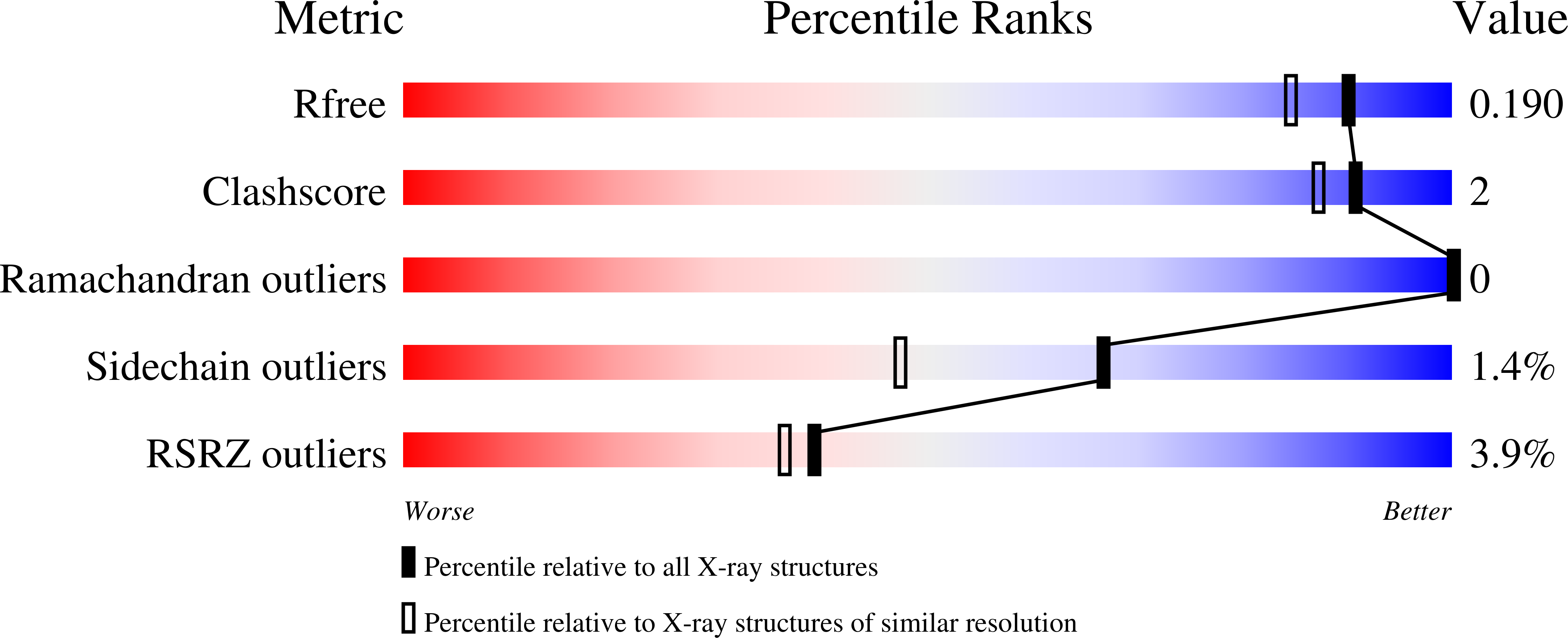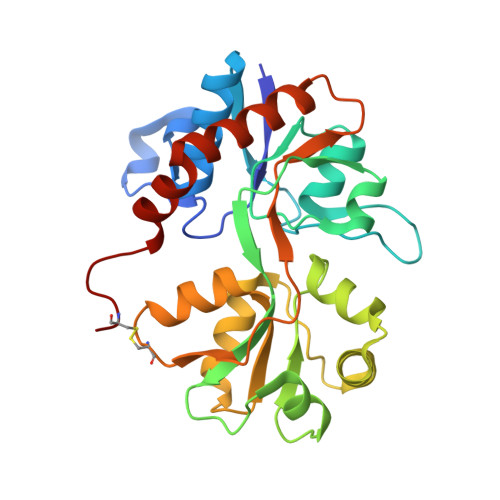Tweaking Subtype Selectivity and Agonist Efficacy at (S)-2-Amino-3-(3-hydroxy-5-methyl-isoxazol-4-yl)propionic acid (AMPA) Receptors in a Small Series of BnTetAMPA Analogues.
Wang, S.Y., Larsen, Y., Navarrete, C.V., Jensen, A.A., Nielsen, B., Al-Musaed, A., Frydenvang, K., Kastrup, J.S., Pickering, D.S., Clausen, R.P.(2016) J Med Chem 59: 2244-2254
- PubMed: 26862980
- DOI: https://doi.org/10.1021/acs.jmedchem.5b01982
- Primary Citation of Related Structures:
5FHM, 5FHN, 5FHO - PubMed Abstract:
A series of analogues of the (S)-2-Amino-3-(3-hydroxy-5-methyl-isoxazol-4-yl)propionic acid (AMPA) receptor agonist BnTetAMPA (5b) were synthesized and characterized pharmacologically in radioligand binding assays at native and cloned AMPA receptors and functionally by two-electrode voltage clamp electrophysiology at the four homomeric AMPA receptors expressed in Xenopus laevis oocytes. The analogues 6 and 7 exhibit very different pharmacological profiles with binding affinity preference for the subtypes GluA1 and GluA3, respectively. X-ray crystal structures of three ligands (6, 7, and 8) in complex with the agonist binding domain (ABD) of GluA2 show that they induce full domain closure despite their low agonist efficacies. Trp767 in GluA2 ABD could be an important determinant for partial agonism of this compound series at AMPA receptors, since agonist efficacy also correlated with the location of the Trp767 side chain.
Organizational Affiliation:
Department of Drug Design and Pharmacology, Faculty of Health and Medical Sciences, University of Copenhagen , Universitetsparken 2, DK 2100 Copenhagen, Denmark.



















